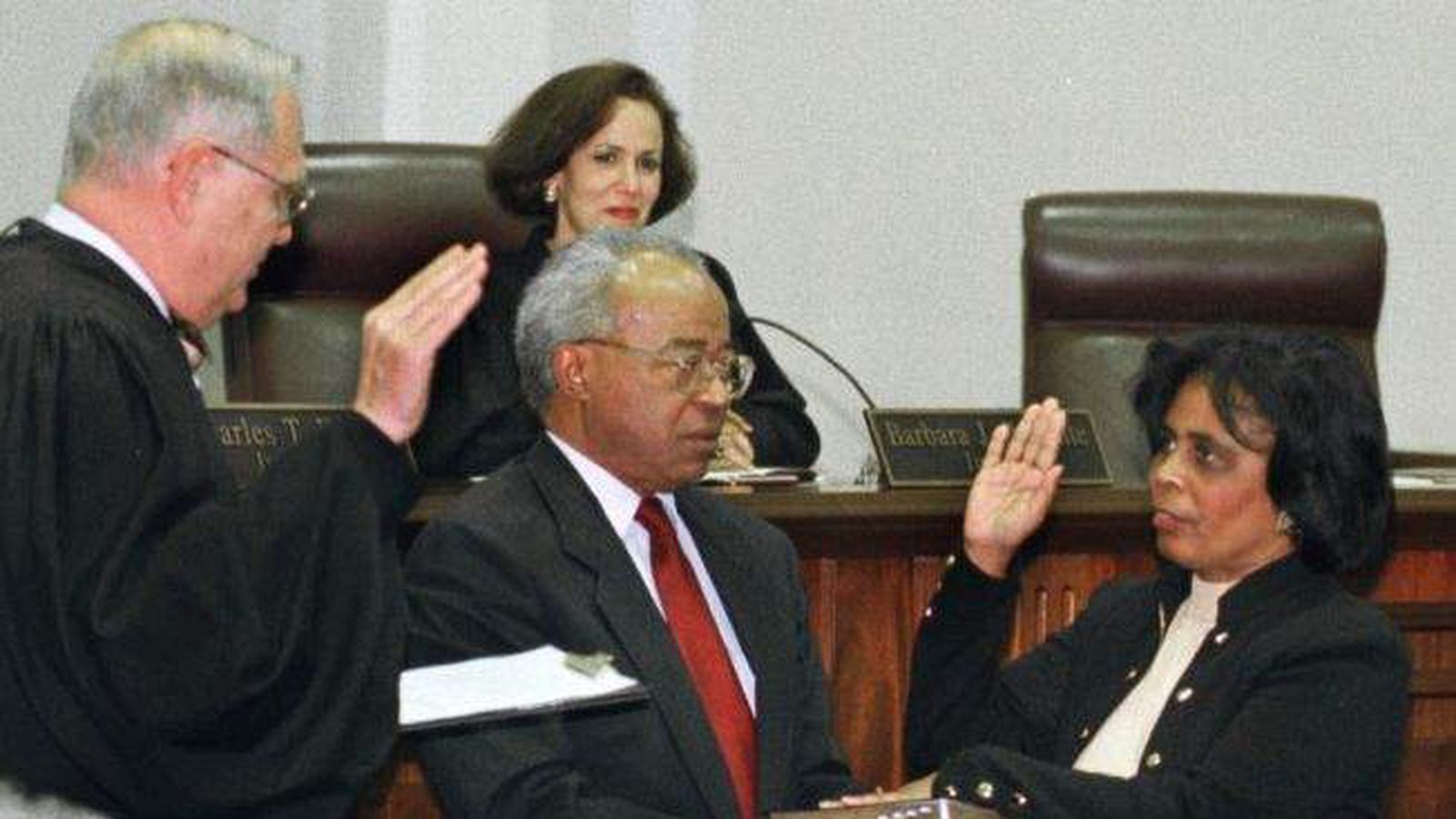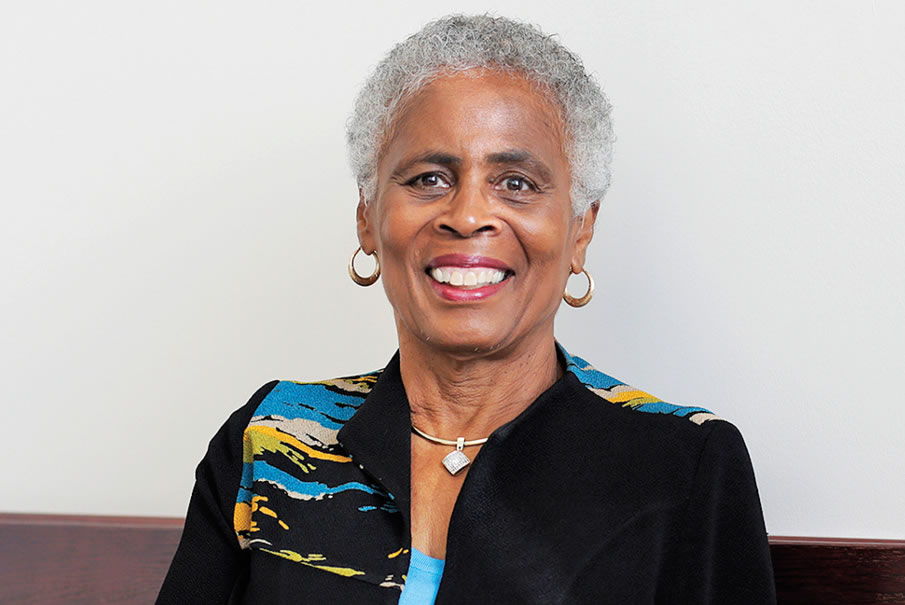

Peggy A. Quince was the first – and remains the only – black woman ever to serve on the Florida Supreme Court. We talked to her on an especially appropriate day: June 18, 2021.
The day before, President Biden signed legislation establishing June 19th or Juneteenth as a federal holiday. It celebrates the day in 1865 when the last slaves, in Texas, were informed they were free. Since June 19, 2021, fell on a Saturday, most federal employees were given the day off on Friday the 18th.
Justice Quince’s path to the Florida Supreme Court took her from segregated schools in Norfolk and Chesapeake, Virginia, to Washington, D.C. – where she attended Howard University and The Catholic University of America Law School. In the 1970s, she served in an office administering the city’s new rent-control law then went on to private practice back in Norfolk and Florida.
In 1980 she began a 13-year career with the Florida Attorney General’s Office Criminal Division that included three years handling death penalty cases exclusively. In 1994, Governor Lawton Chiles appointed her to the Second District Court of Appeal, where she served five years before becoming a justice of the state supreme court.
Her appointment to the state’s supreme court turned out to be unusual in more ways than one.
Technically, she was appointed to the court by three governors.
In 1998, then-Gov. Lawton Chiles wanted to appoint her to the Florida Supreme Court, effective Jan. 5, 1999, but that was the day when the incoming governor, Jeb Bush, would take office. Ultimately, Chiles and Bush agreed to make a joint appointment. Three days after the announcement, however, Chiles died, so a third governor, Buddy MacKay, formerly Chiles’ lieutenant governor, had to sign off on the appointment as well.
Justice Quince eventually became the first African-American woman to serve as chief justice of the court, from 2008 to 2010. After serving on the court for 20 years, she retired in 2019.
Asked what difference her identity as the first black woman on the court made, she says she hopes she inspired “people who look like me, especially young black women” to believe that they can rise to such positions of importance. Also, she believes she brought a perspective to the court that her fellow justices, although they welcomed her warmly, didn’t possess.
As an example, she mentions the case of a young black man who lived in what was classified as a high-crime neighborhood. When police appeared on the scene, he ran. He was charged under a statute that gave police the right to stop and detain people for questioning in such neighborhoods.
“Of course, you can’t do that in a non-high-crime neighborhood,” she says.
“I wrote a dissent, even in the face of the statute, because you have to understand that in those neighborhoods, people are rightly suspicious of the police. So, what do you do if you’re suspicious of people? You’re going to try to get out of there, you’re going to run. That is what I was trying to explain to my colleagues, that it’s not necessarily a sign of guilt.”
In retirement she serves as one of three retired judges on a panel that independently reviews prisoners’ claims of innocence. She mentions having heard cases in which investigators discovered that police had planted drugs on people. The convictions were thrown out.
“Those are the kinds of situations that you may not necessarily know [about] as a white person.”
Chief Justice Quince was less than two years into her service on the Florida Supreme Court when the court became the focus of national attention. In November 2000, the presidential election came down to Florida’s 25 electoral votes. The initial count of the popular vote showed Republican George W. Bush winning the state by just over 500 votes out of nearly 6 million cast.
The Florida Supreme Court decided there needed to be a recount, but the Supreme Court of the United States reversed that decision.
She says the experience taught her two important lessons: that every vote must be counted, and that the rule of law remained strong in the United States.
“In many countries if there had been that kind of controversy, there would have been tanks in the streets.”
Later, in a series of cases related to an amendment to Florida’s state constitution requiring fair redistricting for elective offices, the state’s highest court struck down multiple redistricting maps drawn by the state legislature, ruling that they were unfair. She says the cases demonstrated the importance of the court stepping in when people’s basic rights are threatened.
Among her many other honors, Chief Justice Quince was recognized as a pioneering woman in the law by the American Bar Association Commission on Women in the Profession with the 2006 Margaret Brent Women Lawyers of Achievement Award. In 2007 she was inducted into the Florida Women’s Hall of Fame. Her oral history is included in the American Bar Association’s Women Trailblazers in the Law Project.

CHICAGO – The American Bar Association Judicial Division announced recently that TheNational Ju...

The National Judicial College is mourning the loss of former faculty member Judge Duane Harves, who passed ...

As the world manages an evolving natural environment, The National Judicial College announced today that it...

Do’s Manage your cases systematically Devise a system that works for you and your organizational...

After 22 years of teaching judges, Tennessee Senior Judge Don Ash will retire as a regular faculty member a...